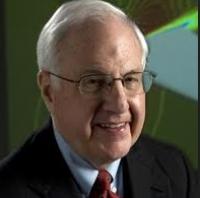
Abstract
A very important function of wind tunnel models and testing is to verify a new aeroelastic theory or a new computational method. For this purpose, experimental aeroelastic model design and manufacturing of scaled models, model ground vibration test and wind tunnel testing are essential to success. In the past 20 years, the Duke aeroelastic group has designed many aeroelastic models and conducted wind tunnel tests to evaluate new theoretical aeroelastic theories and new computational methods. They include: (1) a high aspect ratio wing model; (2) wing like plate models, delta wing-store, flapping flag, yawed plate and folding wing; (3) airfoil section with control surface freeplay; (4) all-movable tail with freeplay model at the root similar to the horizontal tail of an aircraft; (5) a free-to-roll fuselage flutter model; and (6) an experimental oscillating airfoil model at high angles of attack for measuring aerodynamic response. Several examples of model designs, wind tunnel tests and experimental/theoretical correlation studies with the theory are presented. The goal is not only to evaluate a new theory or a new computational method, but also to provide new insights into nonlinear aeroelastic phenomena, flutter/LCO and gust response.
Biography
Dr. Dowell is an elected member of the National Academy of Engineering, an Honorary Fellow of the American Institute of Aeronautics and Astronautics (AIAA) and a Fellow of the American Academy of Mechanics and the American Society of Mechanical Engineers. He has also served as Vice President for Publications and member of the Executive Committee of the Board of Directors of the AIAA; as a member of the United States Air Force Scientific Advisory Board; the Air Force Studies Board, the Aerospace Science and Engineering Board and the Board on Army Science and Technology of the National Academies; the AGARD (NATO) advisory panel for aerospace engineering, as President of the American Academy of Mechanics, as Chair of the US National Committee on Theoretical and Applied Mechanics and as Chairman of the National Council of Deans of Engineering. From the AIAA he has received the Structure, Structural Dynamics and Materials Award, the Von Karman Lectureship the Crichlow Trust Prize and the Reed Aeronautics Award; from the ASME he has received the Spirit of St. Louis Medal, the Den Hartog Award and Lyapunov Medal; and he has also received the Guggenheim Medal which is awarded jointly by the AIAA, ASME, AHS and SAE. He has served on the boards of visitors of several universities and is a consultant to government, industry and universities in science and technology policy and engineering education as well as on the topics of his research. Dr. Dowell research ranges over the topics of aeroelasticity, nonsteady aerodynamics, nonlinear dynamics and structures. In addition to being author of over three hundred research articles, Dr. Dowell is the author or co-author of four books, "Aeroelasticity of Plates and Shells", "A Modern Course in Aeroelasticity", "Studies in Nonlinear Aeroelasticity" and “Dynamics of Very High Dimensional Systems”. His teaching spans the disciplines of acoustics, aerodynamics, dynamics and structures. Dr. Dowell received his B.S. degree from the
